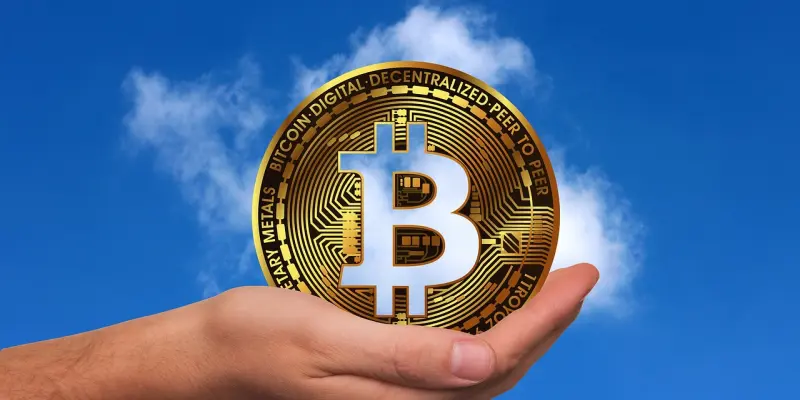In recent years, global economic dynamics have underscored the need for adaptable financial instruments to mitigate uncertainty. Events such as President Donald Trump’s import tariffs revealed significant economic implications, particularly highlighting Bitcoin’s potential benefits during tumultuous financial periods. Economist Saifedean Ammous, known for his seminal work “The Bitcoin Standard,” has analyzed these developments, suggesting that Trump’s transient reduction of tariffs to a 10% baseline was driven by the bond market’s influence over presidential economic strategies. The move, intended to calm the stock market, paradoxically resulted in market volatility, with an unexpected surge in Treasury yields. This backfire hampered Trump’s negotiation leverage, notably with China, emphasizing the bond market’s undeniable grasp on presidential policy-making.
The Impact of Tariffs on Economic Conditions
Tariffs as Tactical Moves
The strategic reversal of tariffs under the Trump administration was seen as a maneuver to stabilize the stock market temporarily. However, this tactic backfired, as it not only failed to prevent immediate market volatility but also triggered a spike in Treasury yields, an outcome contrary to the administration’s expectations. The sudden turn of events demonstrated the bond market’s formidable role in shaping economic policies. Analysts such as Raoul Pal of Global Macro Investor suggested that these tariff changes might have been provisional tactics in pursuit of a broader trade agreement with China. The reluctance to maintain tariffs also exposed China’s diminished urgency for negotiations, further exacerbating instability in both equity and cryptocurrency markets. This environment of economic turmoil has positioned Bitcoin as a refuge, accentuating its utility during periods of financial instability.
Long-term Economic Implications
The broader implications of tariff policies during this period extended beyond immediate market effects, stirring discussions on alternative monetary systems. The evident volatility and economic unrest spurred interest in cryptocurrency, with Bitcoin emerging as a potential economic stabilizer. This discourse aligns with historical monetary strategies, revisiting the idea of using Bitcoin to back currencies, akin to the gold standard that was in place until its suspension in the early 20th century. Ammous’s proposition that the U.S. could initiate a gradual adoption of a Bitcoin standard by accumulating sufficient BTC to back the dollar has resonated amid these discussions. This potential shift hints at evolving financial paradigms, considering Bitcoin’s capped supply as a sustainable alternative to traditional monetary anchors like gold, especially as major market players foresee Bitcoin competing with or surpassing gold in market valuation.
Reevaluating Monetary Standards
The Prospects of a Bitcoin-Backed Dollar
In light of Bitcoin’s resiliency, the possibility of the U.S. dollar’s reinvention is garnering attention. Historically, the dollar’s ties to gold instilled confidence until those bonds were severed in 1971. With Bitcoin proposing a fixed supply reminiscent of gold’s finite nature, discussions have intensified on its feasibility as a monetary substrate. Economist Joe Burnett from Unchained Ventures posits that Bitcoin’s market value could challenge that of gold within a few years. Such predictions are fueling debates over whether the dollar could embrace Bitcoin as a new standard. This reimagining of monetary backing aligns with a broader narrative where cryptocurrencies step into roles traditionally occupied by precious metals, promising a paradigm shift in global financial systems.
Cryptocurrency as Economic Defense
Bitcoin’s potential to act as a stabilizing force during economic uncertainties cannot be overstated. Its fixed supply offers a stark contrast to inflation-prone fiat currencies, forging a new path for economic hedges. As nations reconsider their monetary frameworks in response to global instability, cryptocurrencies, especially Bitcoin, present promising alternatives. Despite market fluctuations, Bitcoin’s reliability as a digital asset underlines its positioning in future economic conversations. The path to a Bitcoin-backed monetary system may be fraught with regulatory challenges and technical hurdles, yet its potential to offer stability in times of economic difficulty fuels ongoing discourse among economists and policymakers alike.
The Path Forward in Economic Innovation
Given Bitcoin’s resilience, the potential for the U.S. dollar to undergo reinvention is gaining attention. Historically, the dollar’s link to gold instilled trust until those ties were cut in 1971. Bitcoin, with its fixed supply akin to gold’s limited nature, has sparked discussions about its viability as a foundational monetary element. Economist Joe Burnett of Unchained Ventures suggests that Bitcoin’s market value might rival that of gold in just a few years. These forecasts are sparking debates about whether the dollar could adopt Bitcoin as a new monetary standard. This contemplation of new backing for the dollar aligns with a broader shift, where cryptocurrencies are stepping into roles traditionally held by precious metals. Such a move promises a significant transformation in global financial systems, potentially changing how we perceive value and currency. As digital currencies like Bitcoin continue to evolve, they may redefine the financial landscape, guiding the future of economic frameworks and global commerce.

